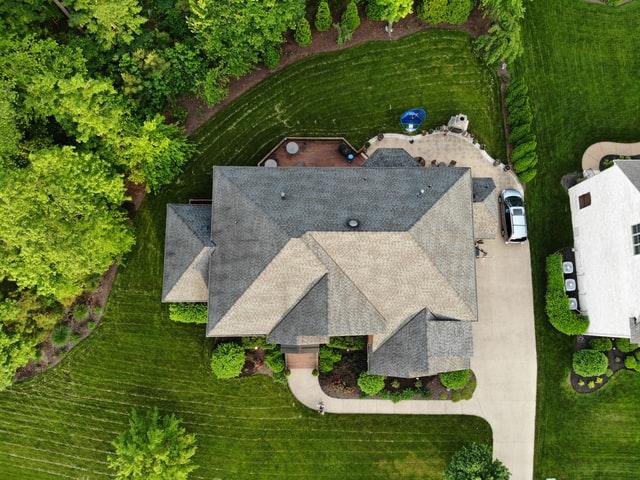The document that is the Certificate of Location can seem complex and raise many questions, ranging from costs and validity periods to the procedures for obtaining a new certificate.
To clarify this document and provide straightforward answers, we’ve put together an article addressing some of the most frequently asked questions. By the end, you'll have a comprehensive understanding of what a Certificate of Location entails.
1. What is a Certificate of Location?
A Certificate of Location, crafted by a certified land surveyor, is an essential legal document that includes a detailed map and a supporting report. Its primary objective is to illustrate the current condition of a property, providing information on ownership titles, land registry entries, and relevant laws and regulations that may affect it.
2. What is the purpose of a Certificate of Location?
The Certificate of Location provides a comprehensive overview of both the physical attributes and legal status of a building or piece of land. It ensures adherence to regulations and identifies any irregularities requiring rectification.
In real estate transactions, the Certificate of Location plays a critical role in empowering buyers to make informed decisions. It furnishes detailed information that helps buyers assess the property thoroughly before making a purchase.
3. What does this document contain?
The plan and written report of the Certificate of Location include essential details such as:
- Detailed property decription
- Easements, such as rights of way
- Constraints, such as agricultural or flood zone
- Encroachments
- Compliance with municipal and governmental regulations.
Understanding these elements is vital because they can markedly impact the property's value and potentially restrict the buyer's intended use of the property.

4. When do I need a Certificate of Location?
The Certificate of Location is predominantly used in real estate transactions. Sellers are advised to possess an up-to-date Certificate of Location before beginning the marketing of their property. This precaution helps avoid potential transactional delays that may arise if a new certificate is needed.
5. Is a Certificate of Location mandatory?
According to the Quebec government, a Certificate of Location is mandatory for all real estate transactions within the province. This requirement applies to both the sale and purchase of properties whether they are buildings or vacant lands.
6. Can a Certificate of Location expire?
While there isn't specific legislation that directly invalidates a Certificate of Location, it's important to note that this document has a finite validity period.
A Certificate of Location becomes obsolete when it no longer accurately reflects the current state of the property. For instance, the creation of a new easement or the construction of a new building could make the existing certificate outdated.

7. How long can it be valid?
As previously mentioned, the validity period of a Certificate of Location varies widely depending on changes made to the property. It remains valid as long as it accurately reflects the current state of the property.
However, experts suggest that a Certificate of Location typically remains valid for up to 10 years. Beyond this timeframe, a new document is often required, even if no apparent changes have taken place.
Various alterations such as extensions, the addition of outbuildings, swimming pools, or fences are examples of changes that may necessitate obtaining a new certificate. Therefore, each situation is unique and requires individual assessment.
8. How can I know if the information is up to date?
The notary responsible for overseeing the real estate transaction plays a crucial role in verifying the adequacy of the Certificate of Location provided. They conduct thorough checks to ensure its validity and accuracy.
In cases where there are uncertainties or concerns regarding the existing Certificate of Location, the notary, or sometimes the financial institution providing the loan, may request a new Certificate of Location.
9. What if the certificate is invalid?
If the document is outdated, the only option is to obtain a new one.

10. Who must provide the Certificate of Location in a real estate transaction?
As mandated by law, it is the seller’s responsibility to provide the certificate to the buyer. The document must accurately reflect the status of the property. If it does not, a new certificate must be obtained.
11. How can I obtain a copy of an existing certificate?
You can request a copy of a Certificate of Location from the land surveyor who prepared it. However, please note that this is a private document accessible only to authorized clients and stakeholders.
In cases where the surveyor is no longer practising or has passed away, you can reach out to the custodian of their records for assistance in obtaining a copy.
12. How can I obtain a new Certificate of Location?
Under the Land Surveyors Act, only a licensed land surveyor is authorized to issue a Certificate of Location. To obtain this document, you must contact a qualified land surveyor in your local area.
13. How long does it take to produce a new certificate?
Obtaining the plan and written report typically takes between 4 to 6 weeks.
It's important to consider that the surveyor needs to visit the site to make observations and measurements, which adds to the timeline. Additionally, there is the time required for data analysis and report writing.

14. How much does a Certificate of Location cost?
According to the Ordre des arpenteurs-géomètres du Québec (OAGQ) fee guidelines, the cost of a Certificate of Location alone is $1,550. If combined with a staking operation, the total cost is estimated at $2,255. These rates apply specifically to a single-family home.
15. Who pays for the Certificate of Location?
If the certificate held by the seller is outdated, the seller bears the expense of obtaining a new certificate.
On the other hand, if a new certificate is issued and reflects no changes from the previous one, the buyer is responsible for covering the costs.
16. Is title insurance as good as a certificate of location?
Title insurance provides financial protection to the buyer against potential title defects, including issues related to the Certificate of Location such as illegal views or encroachment on easements.
While title insurance may seem like a cost-effective alternative to obtaining a new certificate, it CANNOT replace the necessity of a valid Certificate of Location.
Professional verification by a notary ensures not only the identification of irregularities but also their resolution. In contrast, title insurance solely provides financial compensation in case of problems.
Therefore, a valid Certificate of Location remains the preferred and essential solution for ensuring comprehensive property verification.
Cover picture : Freepik.com
Are you in need of a Certificate of Location?
XpertSource.com can help you find a certified appraiser. When you tell us about your project, we put you in touch with qualified resources for FREE. Simply fill out our form ( it only takes a few minutes ) and we will connect you with professionals.

